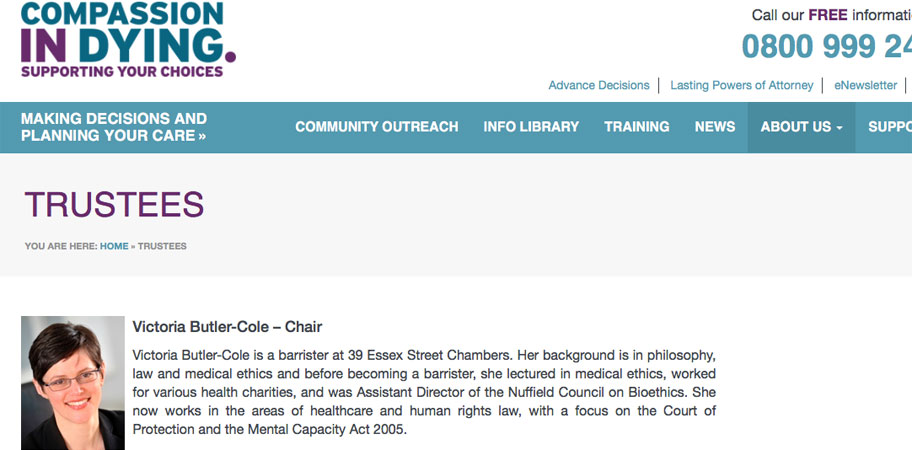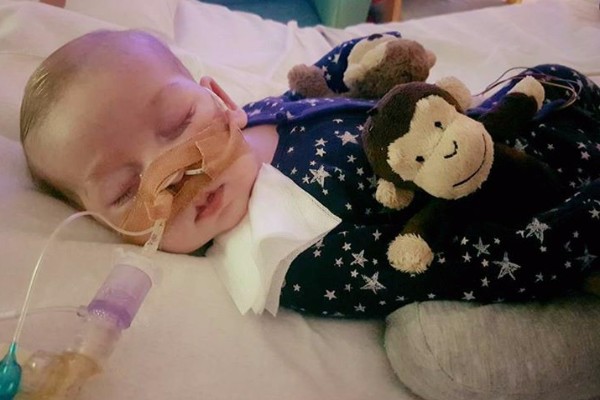A new court hearing is underway to determine if Charlie Gard, the baby whose fate has captivated the world, will be allowed to undergo experimental treatment that his parents believe may help to save his life. In the latest update, Charlie’s parents scored a major win, as the judge ruled that Michio Hirano will be allowed to visit Great Ormond Street Hospital to examine Charlie, after Hirano testified that there was between a 10 percent and 55 percent chance of “clinically meaningful success,” and that Charlie may not actually be brain-damaged, but instead, be battling muscle weakness. Hirano said that he would need to see Charlie firsthand in order to determine if he could be helped by the nucleoside therapy.
While Charlie’s parents want the experimental therapy for their son, and want to keep fighting for his life, the hospital has been fighting to take Charlie off of life support, saying that he is “suffering” and cannot see or hear… and therefore, it is better for him to die. Now, Charlie’s parents have discovered that the lawyer assigned by the court to represent Charlie’s best interests is the head of a pro-euthanasia organization.

Screenshot, Compassion in Dying (UK)
Victoria Butler-Cole was chosen by the court to speak on Charlie’s behalf. She is also chairman of Compassion in Dying, an organization which, while it does not directly promoted assisted suicide or euthanasia, has a “sister” organization, Dignity in Dying, which does. Dignity in Dying, formerly known as the Voluntary Euthanasia Society, lobbies the British government to make assisted suicide legal. The two organizations share the same chief executive and media team. Trustees, like Butler-Cole, are only permitted to sit on the board of one of the charities if they support the goals of the other.
Is it possible for someone who is clearly pro-euthanasia to be unbiased in this case? Charlie’s parents evidently don’t think so. “The family find it astonishing that the quango that appointed the barrister to act in the interests of Charlie Gard is the chairman of Compassion in Dying, the sister body of Dignity in Dying, formerly known as the Voluntary Euthanasia Society,” the Daily Telegraph reported. “The implication is obvious. It looks like a profound conflict of interest.”
Compassion in Dying, meanwhile, has responded to the controversy by insisting that there is no conflict of interest. “There are clear differences between this case, the work of Dignity in Dying and the work of Compassion in Dying,” the statement read. “The Charlie Gard case is about making decisions in the best interests of a seriously ill child.”
But it would be naive at best to believe that there is no overlap between the language that the hospital has used — that Charlie is severely disabled and is suffering, and it’s therefore better for him to die — and the language frequently used by the euthanasia lobby. Pro-euthanasia advocates often argue that it is better for people to “die with dignity,” which is what the High Court ruled Charlie should be able to do, than to live with a terminal illness or severe disability. Will Butler-Cole’s obvious pro-euthanasia bias interfere with her ability to advocate for Charlie Gard’s life? It’s a fair question to ask, and one that deserves an answer.








